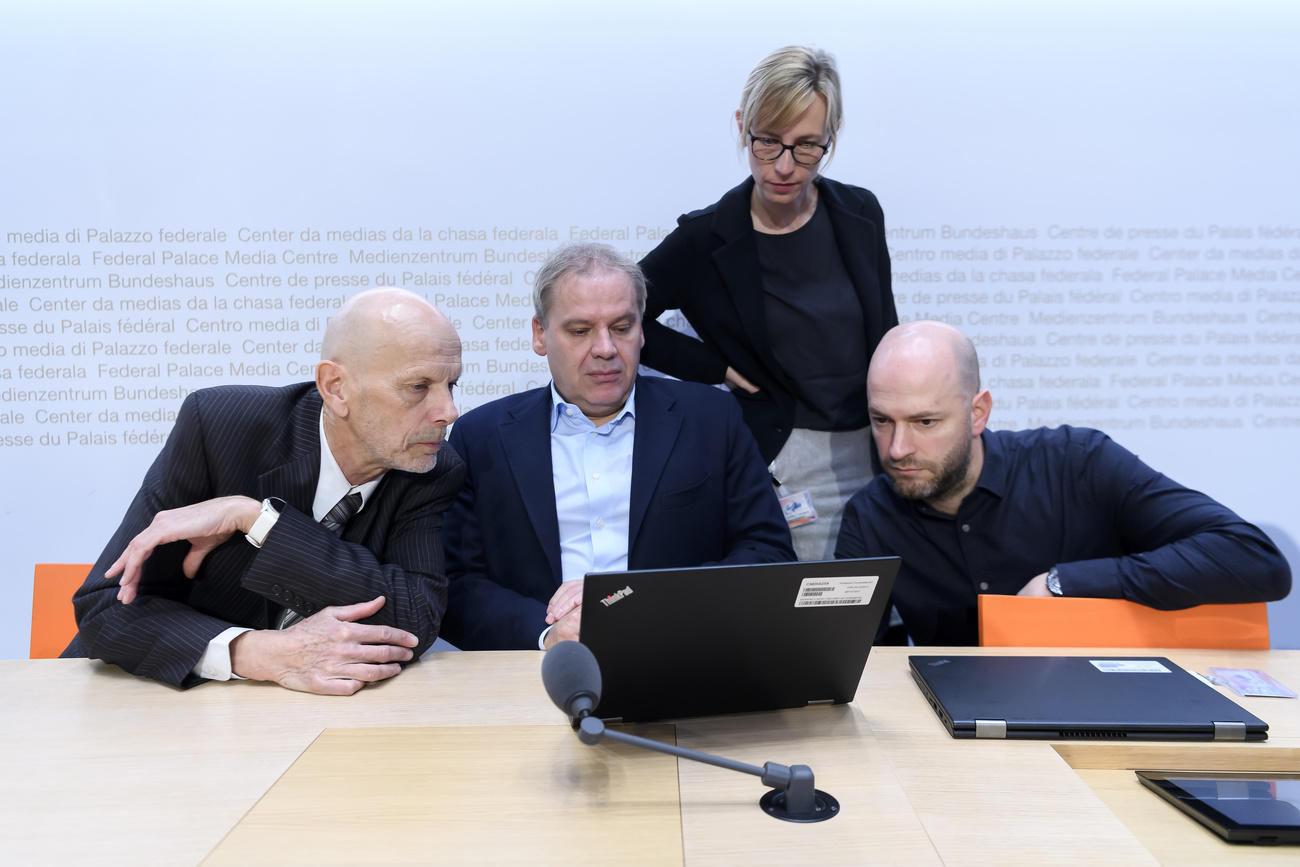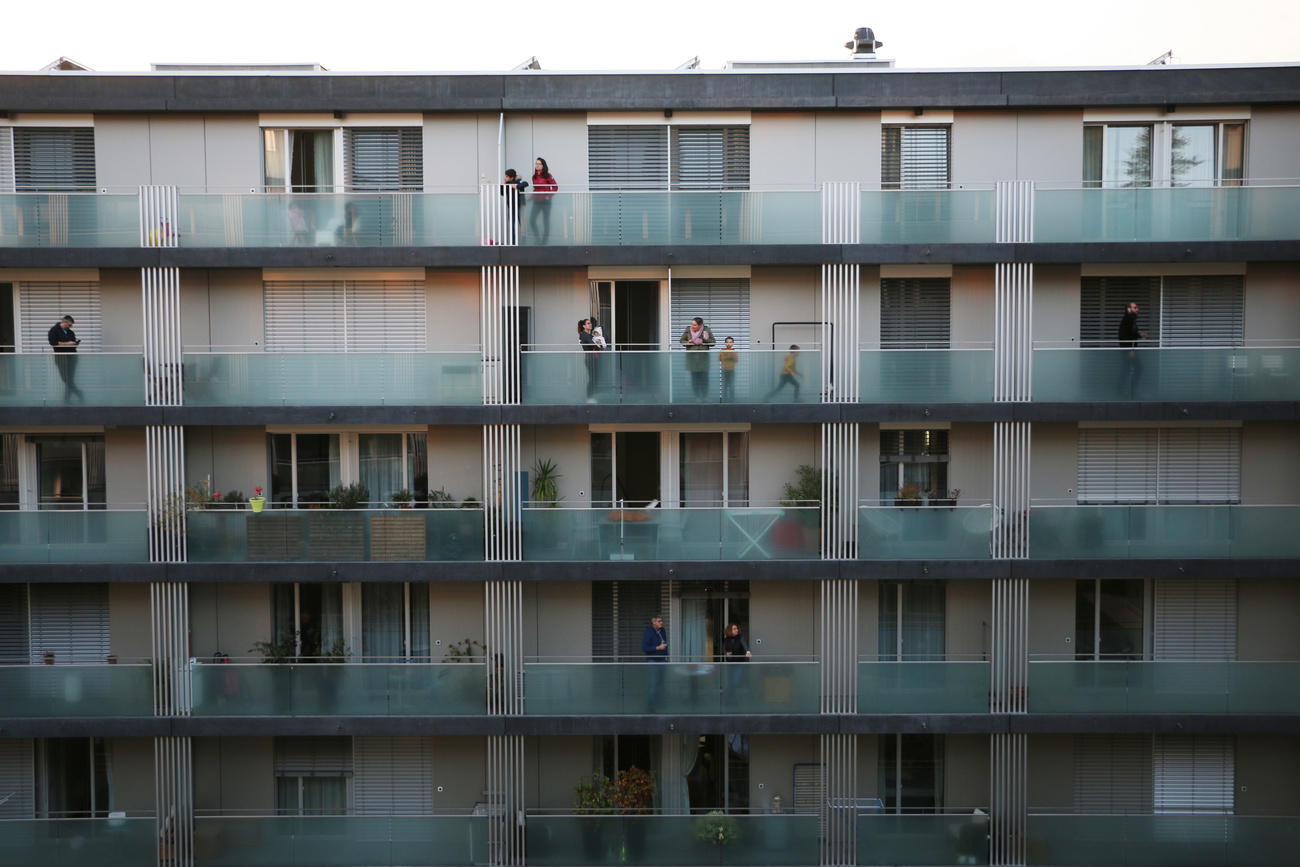How the Covid-19 crisis reveals cultural divide between Swiss language regions

Switzerland’s response to the coronavirus pandemic has sharply exposed the so-called ‘Röstigraben’ – the imaginary cultural and social divide between Switzerland’s German, French and Italian speaking areas.
“A Röstigraben has appeared between French- and Italian-speaking governments determined to block everything to slow the spread of the disease and the more hesitant German-speaking cantons,” wrote the French-language Le Temps newspaper on March 17.
Christian Vitta, the combative president of the government in Italian-speaking canton Ticino, recently underscored these regional differences.
“The spread of the coronavirus is not the same in the different cantons. There are regions where the virus is more developed, such as Ticino. It’s difficult to have a single solution for the whole of Switzerland. These measures must be modulated,” Vitta told Swiss public radio, RTS, on March 24.
The small Alpine nation has been badly hit by the virus, with almost 12,000 positive tests and almost 200 deaths. Italian-speaking canton Ticino and French-speaking Vaud and Geneva have been worst affected.
In common with the rest of Switzerland, Ticino has already closed down non-essential high street shops and services. This was ordered by the federal authorities. But on March 22, the southern Swiss canton, which borders Italy, went further than other cantons by ordering factories and production lines to temporarily close.
With an eye on the spread of the virus in neighbouring countries, the federal government has had to tread very cautiously with the cantons, taking small steps to take control and impose a partial lockdown nationwide.
Trust and tougher measures
Different regional viewpoints on the level of threats and the Swiss response bubbled to the surface in a recent national opinion poll. It showed that almost half (49%) of all Swiss residents believe the federal government reacted too slowly to the spread of the virus. But criticism was most vocal in Ticino (68%) and in French-speaking Switzerland (64%), compared to German-speaking regions (42%).
In all, 59% of French-speakers say the federal government’s measures don’t go far enough, compared to 38% in German-speaking regions, and 30% of Italian-speakers.

More
Coronavirus: the situation in Switzerland
Trust in the authorities is split across the country. Around 70% of German-speakers say they have confidence in the leaders, compared to 45% in both Italian- and French-speaking regions.
Political analyst Michael Hermann, whose Sotomo agency carried out the survey, said the different levels of urgency in each region partly explains the different standpoints.
But he added: “In French-speaking Switzerland, a majority is calling for additional restrictions for going outside, following the example of France. Cultural aspects may also be coming into play, such as the role of the state, or trust in individual responsibility, which is more noticeable in German-speaking Switzerland than in French-speaking Switzerland.”
Hermann has another theory about the geographical spread of the disease: that Mediterranean countries are more tactile and are less used to social distancing than German-speaking countries.
Individual responsibility
Switzerland is a melting pot of cultures from northern and southern Europe, says Swiss historian Olivier Meuwly. In German culture it is assumed that individual responsibility will lead to collective responsibility, says the historian, which is a strange idea for cultures from southern Europe where “order is supposed to come from above”, he recently told Le Temps.
Olivier Moeschler, a sociologist and associate researcher at the University of Lausanne, said he was not surprised by the poll results, which confirmed previous observations on cultural differences between Swiss language regions.
He said attitudes towards the state clearly diverged according to the language region: “French-speaking Switzerland refers more willingly to France and its centralist, state-driven model, while Swiss-German regions are closer to federal Germany… France is largely built on a top down model – a strong authority seen as a necessity, a structuring force, which may be feared, but where people have great expectations… while in Germany it’s more bottom up.”
The notion of individual responsibility also appears to vary by region. In French- and Italian-speaking Switzerland there have been calls by scientists, in an online petitionExternal link and by local politicians for the authorities to impose a tighter lockdown. Meanwhile, in Swiss-German parts, politicians have mainly demanded the public respect the new confinement measures.
Are Swiss Germans more self-disciplined and more willing to abide by the new rules regarding staying at home and social distancing, compared to French- and Italian speakers? This is hard to say. The government’s public health messages now seems to be better followed across the country. A survey in the tabloid Blick External linkof cantonal police forces across Switzerland reports this week that while patrols have been stepped up, few fines have been handed out and people appear to be staying at home. Deserted streets are the new norm in all regions.
Press viewpoints
Contrasting cultural attitudes regarding coronavirus have occasionally been reflected in the Swiss press. While the French-language media now seem to largely support the federal government’s virus strategy, there was some early criticism of the “cacophony” between Bern and the cantons, and the slowness and limits of federalism.
Meanwhile, calls for a tighter lockdown seem to have vexed some Swiss-German papers. “The power of the French president fascinates all French-speaking politicians in Switzerland,” declared Tages-Anzeiger. The Neue-Zürcher Zeitung paper, for its part, called their demands disproportionate and damaging.
A Tages-Anzeiger editorial on March 26 claimed people in French-speaking Switzerland seemed to be blaming the “ignorant, know-it-all Swiss Germans… the oppressors of the linguistic minorities” for their situation.
The paper said the mood had changed from early March, when French speakers had laughed at a leading doctor’s assessment that Swiss German speakers could be more at risk of contracting Covid-19 due to the many guttural sounds needed by the dialect. The editorial concluded in a more conciliatory tone that the country “as a whole must now show solidarity. There is no room for resentment”.
An earlier version of this article incorrectly referred to Christian Vitta as the president of the Senate. This has now been corrected.

In compliance with the JTI standards
More: SWI swissinfo.ch certified by the Journalism Trust Initiative











You can find an overview of ongoing debates with our journalists here . Please join us!
If you want to start a conversation about a topic raised in this article or want to report factual errors, email us at english@swissinfo.ch.